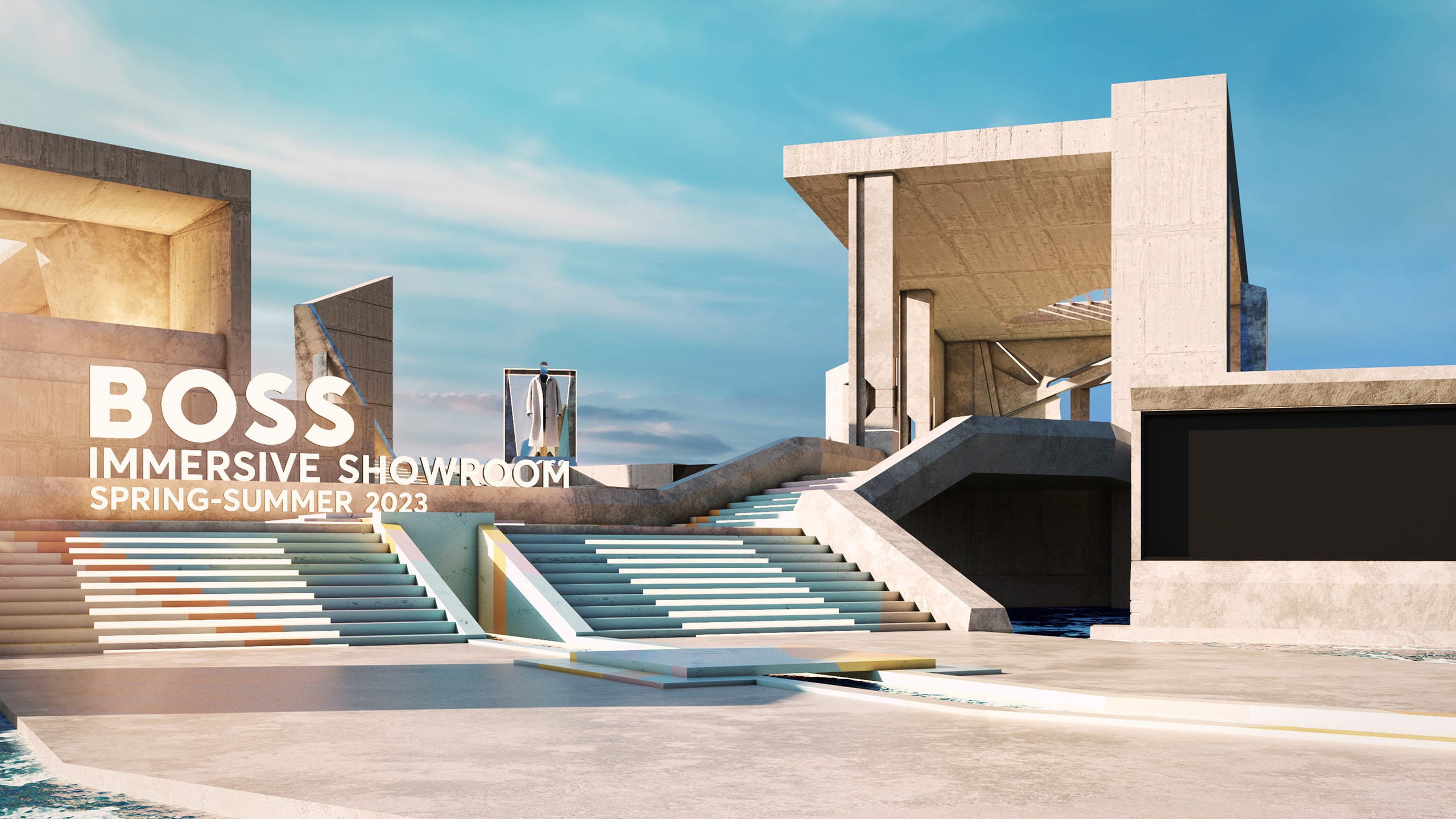AI-Apparel Crossover Continues: BlueCotton Integrates AI into Online Designer, BOSS Launches Metaverse Experience
BlueCotton, an online custom screen printing and embroidery company, enters the artificial intelligence (AI) world by adding an AI text-to-image generator to its online design studio.
While BlueCotton’s design studio has been in use since 2007, helping businesses, schools, and other organizations create custom T-shirts, the AI addition simplifies the process.
How AI Simplifies Design
While the clip art, font, and standard image upload features are still available to customers, the AI text-to-image generator makes the custom design process more accessible, says a press release. Users can describe their vision and instantly have a variety of designs to choose from — eliminating design fees and wait times for mockups.
“The focus of BlueCotton is continuous improvement of the customer and employee experience,” Mike Coffey, founder and CEO of BlueCotton, said in the release. “We believe this is yet another step in making the process of creating your own design easy, no matter the skill or creative level of the user.”
As AI continues to spread into every facet of the world, designers and printers in the apparel decorating industry continue to explore its capabilities.
Michelle Moxley of M&R did a deep dive into AI for design and after two months of exploration, she says it’s a great concept art tool. It can churn out a good starting point for designers, and in some cases useable graphics.
And while the technology might be intimidating, Moxley says “it’s too big to let it pass you by and be afraid of it because it’s coming in every aspect of our lives, and you have an opportunity as an artist to learn it through art.”
AI in Retail Apparel
On the retail apparel side, BOSS by HUGO BOSS joins the long list of brands stepping into the metaverse, according to a news release. During Metaverse Fashion Week (March 28-31), it launched a virtual showroom where customers can interact with products for an immersive experience.

The BOSS metaverse showroom. | Credit: BOSS
What serves as an extension of the in-person BOSS Miami Fashion Show, the virtual showroom points to the popularity of “phygital” — the melding of physical and digital worlds.
To do this, BOSS used AI to translate the physical show’s creative concept into a digital version, which connects to BOSS’ online store. Outfits featured include pieces from the runway and additional men’s and women’s styles.
Taking it a step further, there’s a gamification element. Users are guided through the space to discover shoppable looks and collect objects. Upon completion, they receive a digital BOSS suit similar to one seen on the runway, which can be worn on the gaming platform Ready Player Me.
“Following a line-up of NFT projects, the BOSS immersive showroom is the next step in our exploration of Web3 and the Metaverse, exciting new spaces for fashion brands.”
— Daniel Grieder, CEO of HUGO BOSS
Earlier this year, H&M also made headlines with its launch into the metaverse via Roblox, following companies like Ralph Lauren, Gucci, and Vans.

